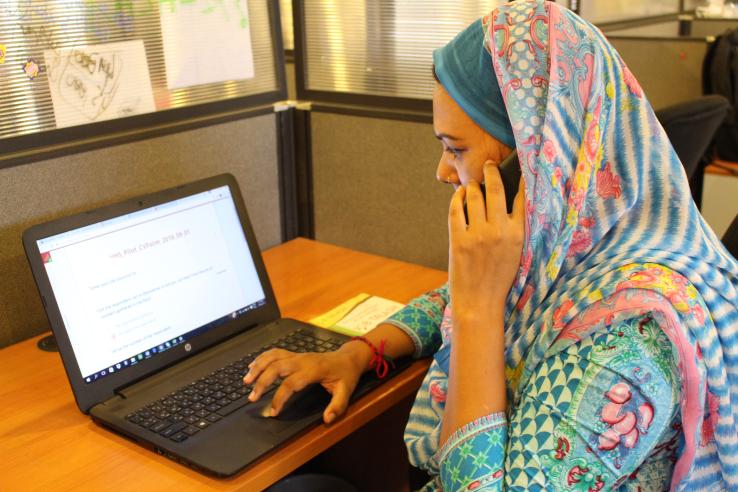Displaying 7021 - 7035 of 8490
Blog
J-PAL North America Co-Executive Directors Laura Feeney and Vincent Quan reflect on the last year in this post.
Evaluation
In Niger, researchers conducted a randomized evaluation to test the impact of providing training and conditional or unconditional cash transfers on farmers’ adoption and use of an environmental technology, their resulting land use, agricultural production and profitability, and labor allocation. Providing farmers with training led to a substantially higher probability of adopting the technology, while the conditional or unconditional cash transfers had no additional effect on farmers’ decision to adopt.
Evaluation
Researchers conducted a randomized evaluation to test the impact of reducing the psychological costs of job applications, such as the tendency to postpone applications because completing a task today seems more burdensome than tomorrow, on job application rates and interviews in Lahore, Pakistan. The intervention, which involved follow-up calls inviting job seekers to apply for jobs, increased the number of job applications and interviews. The benefits of applying to jobs were similar after the increase in applications, suggesting that psychological costs play an important role in job search behavior.
Evaluation
In partnership with the Government of Tamil Nadu, researchers evaluated the impact of incentivizing and monitoring walking on exercise and health. Incentives increased walking and improved health, as measured by risk factors for diabetes and by mental health.
Person
Person
Person
Person
Manuela Angelucci is an associate professor of economics at the University of Texas at Austin. Her research interests span mental health, consumption, risk-sharing, gender, and migration.
Person
James Robinson is a University Professor of Political Science at the University of Chicago and the Reverend Dr. Richard L. Pearson Professor of Global Conflict Studies. His research focuses on political economy, comparative politics, and economic and political development. He has conducted fieldwork...
Person
Patrick McNeal joined J-PAL in 2010 and manages its information technology. Patrick holds an Bachelors of Science degree in Computer Engineering from the University of Michigan. Previously, he worked for both the University of Michigan and MIT's central technology groups.
Person
Dina Pomeranz is an Associate Professor of Applied Microeconomics at the University of Zurich. Her research focuses on public policies toward firms and entrepreneurs in developing countries. In particular, she has conducted large-scale randomized field experiments about tax evasion by firms and...
Person
Susanna Berkouwer is an Assistant Professor of Business Economics and Public Policy and the Robert J. Aresty, W’63 Faculty Scholar at The Wharton School at the University of Pennsylvania.
Person
Ofer Malamud is a Professor of Human Development and Social Policy and a Faculty Fellow at the Institute for Policy Research at Northwestern University. Ofer’s research interests are concentrated in three substantive areas: educational investments over the life course, the role of technology in the...
Person
Emily Breza is the Frederic E. Abbe Professor of Economics at Harvard University Department of Economics and Co-Chair of J-PAL's Finance sector. Her research focuses on development economics and household finance.
Person
Natalia Rigol is an Associate Professor at the Harvard Business School. She studies the design, targeting, and delivery of financial products to the world’s poorest people, with a particular focus on financial inclusion for women. Currently, Natalia is researching the interaction between financial...



